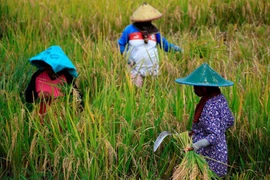Jakarta (VNA) – The Indonesian incoming administrationled by President-elect Prabowo Subianto will highlight the country’s largedomestic market to attract foreign investors.
Drajad Wibowo, an economic expert on Prabowo’s campaign team,said that in addition to the advantage of being the world’sfourth-most-populous country, Indonesia sees the abundance of raw materials asanother selling point, much like incumbent President Joko Widodo.
Regarding the sector that Prabowo will focus on for foreigninvestment, Drajad said the President-elect will push for developing downstreamindustries based on 21 locally sourced commodities, including coal, nickel, oilpalm products, biofuel and timber.
Drajad said Indonesia had been too focused on just making crudepalm oil (CPO) from palm fruit when there were plenty of other derivativeproducts that could be produced.
A lot of palm derivatives can be used for food and beverages.The food and beverage market in Indonesia is huge, and the country is still notconsuming enough domestically sourced ingredients, said Drajad.
The appeal of Indonesia’s domestic market with a population ofabout 270 million is attractive enough to lure investors, he said.
He said the ultimate goal is to export the downstream productsunder the assumption that, once it got a strong foothold in Indonesia, aproduct could expand to other Asian markets, effectively making the archipelagoa “stepping stone” for investors.
Drajad also mentioned the export potential of wood products,which commonly ended up as construction materials or pulp and paper but caninstead be processed into rayon, a high-end fashion material.
However, Drajad admitted that it is impossible to apply the downstreamagenda to all of the 21 commodities, given resource limitations. Therefore, one of them will become Prabowo’s flagship, much likenickel to Jokowi, he added.
Drajad also said Prabowo will focus on boosting investment inlabour-intensive businesses, including in agriculture.
He reiterated that Prabowo will push the much-discussed foodestate project, which can complement Prabowo’s free school lunch and nutritionprogramme.
The programme targets more than 82 million students frompreschool to senior high school and is expected to cost at least 100 trillion IDR (6.32 billion USD) in its initial year and 460 trillion IDR a year once itreaches full scale in 2029.
That number is equal to 12% of Indonesia’s state budget thisyear and approximately 2% of the country’s GDP/.




























